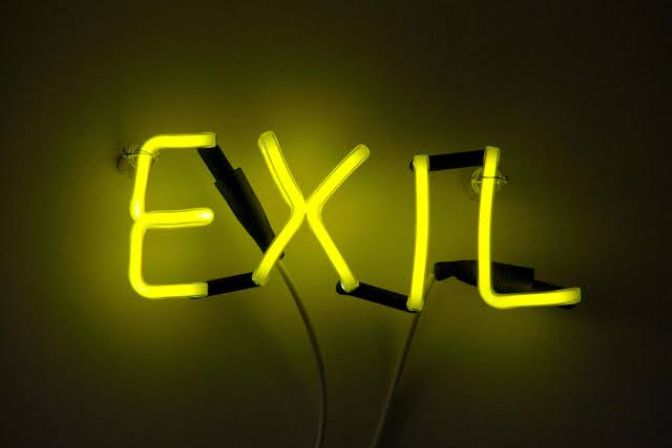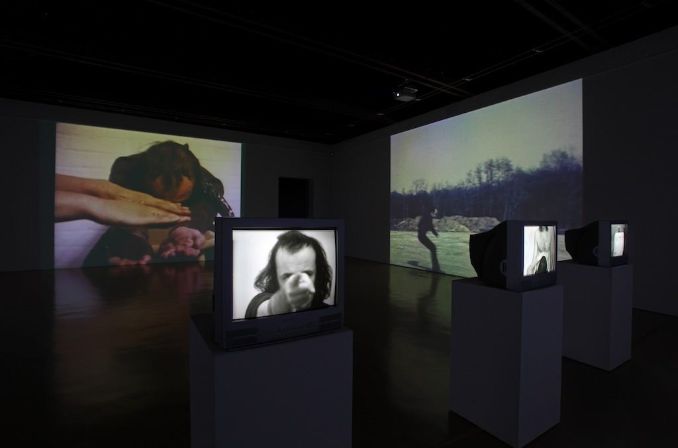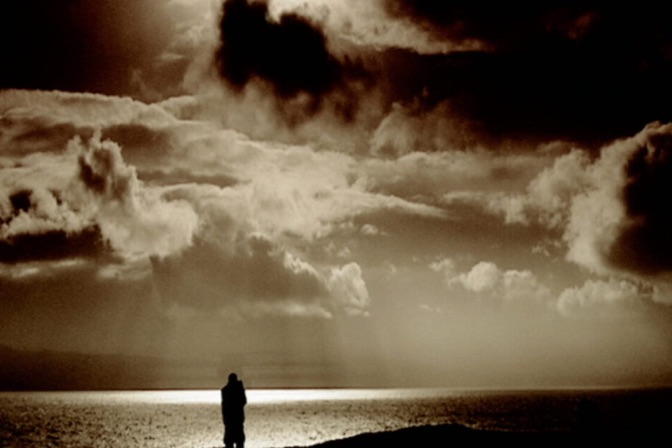The Ghetto Biennale in Haiti is a project born not only from the desire present art, but to interrogate the structures that govern who gets to make it, where it can be shown, and how it is valued. Co-directed by British artist, writer, and curator Leah Gordon—born in Ellesmere Port between the former epicentres of England’s slave trade and industrial revolution—the Biennale responds to histories of power and the lasting imprint of colonial hierarchies. Gordon’s early photographic work in Haiti, particularly her long-term series Kanaval set in the southern coastal town of Jacmel, revealed a deep engagement with ritual, resistance, and the aesthetics of political satire, and it is this sensitivity that underpins her curatorial vision.
The Biennale itself emerged from a question both practical and philosophical: what happens when artists from the Global North enter a context like Haiti’s, one shaped by centuries of economic extraction, political interference, and cultural resilience? How can collaboration occur without reinscribing the very dynamics it seeks to dismantle? These tensions were captured in one of the event’s original straplines—“What happens when first-world art rubs up against third-world art? Does it bleed?”—a line adapted from Gloria Anzaldúa’s writing about the U.S.-Mexico border as a site of friction, where worlds clash and wounds are laid bare.
Held in the heart of Port-au-Prince, often in neighborhoods marginalized or entirely bypassed by international cultural circuits, the Ghetto Biennale functions less as a traditional exhibition and more as an experiment in situational practice. It invites artists to work within Haitian communities, not as observers but as collaborators, confronting the contradictions of mobility and access. While artists from wealthier countries can travel freely and often bring resources with them, their Haitian counterparts are routinely excluded from those same privileges. The Biennale does not pretend to resolve these asymmetries, but rather exposes them, making them part of the work itself.
In a recent talk moderated by Keith Whittle, co-founder of the Biennale—Gordon placed the project within the larger context of global “biennialisation,” a phenomenon that has seen the proliferation of international art exhibitions over recent decades. Alongside curators such as Lewis Biggs (Liverpool Biennial), Shubigi Rao (Kochi-Muziris Biennale), and Fram Kitagawa (Echigo-Tsumari Art Triennale), she explored the implications of a world in which art circulates across ever-faster networks of capital and communication. As biennials multiply, so too does the art world’s appetite for the “global,” the “marginal,” and the “authentic”—raising difficult questions about cultural extraction, visibility, and the role of the curator as broker in a globalised economy of taste.
Read >> Ghetto Biennale
Read >> Leah Gordon
Watch >> Ghetto Biennale
Watch >> Atis Rezistans | Ghetto Biennale, documenta 2022
Watch >> The Sculptors of Grand Rue
The Ghetto Biennale, however, resists easy incorporation into these circuits. Its very name is a provocation, foregrounding the exclusionary logics of the art world while also insisting on the radical possibilities of working outside its traditional centres. Here, the boundaries between art and life, between ritual and performance, collapse. What emerges is not a spectacle for export, but a conversation rooted in place, charged by history, and—often—deliberately uncomfortable. Rather than offering resolution, the Biennale stages encounter. And in doing so, it asks not only what art can be, but where it can come from—and who it is for.
Gordon’s film and photographic work has been exhibited internationally including the Museum of Contemporary Art, Sydney; the Dak’art Biennale; the National Portrait Gallery, UK and the Norton Museum of Art, Florida. She is the co-director of the Ghetto Biennale in Port-au-Prince, Haiti; was a curator for the Haitian Pavilion at the 54th Venice Biennale; was the co-curator of ‘Kafou: Haiti, History & Art’ at Nottingham Contemporary, UK; and was the co-curator of ‘PÒTOPRENS: The Urban Artists of Port-au-Prince’ at Pioneer Works, NYC in 2018 and MOCA, Miami in 2019. In 2015 Leah Gordon was the recipient of the Colección Patricia Phelps de Cisneros Travel Award for Central America and the Caribbean. In 2022, her award-winning feature-length documentary Kanaval: A People’s History of Haiti in Six Chapters was broadcast in selected cinemas and on BBC 4’s Arena. In 2022, Gordon also exhibited in and curated the Atis Rezistans | Ghetto Biennale exhibition at St Kunigundis Church at documenta fifteen, Kassel; her work showed at MOCA North, Miami; Power Plant Gallery, Duke University, NC, USA, and Haus der Kulturen der Welt, Berlin, Germany.
Curated by Keith Whittle in partnership with ArtLink and hosted by Void Gallery. Funded by Art Council Ireland.



